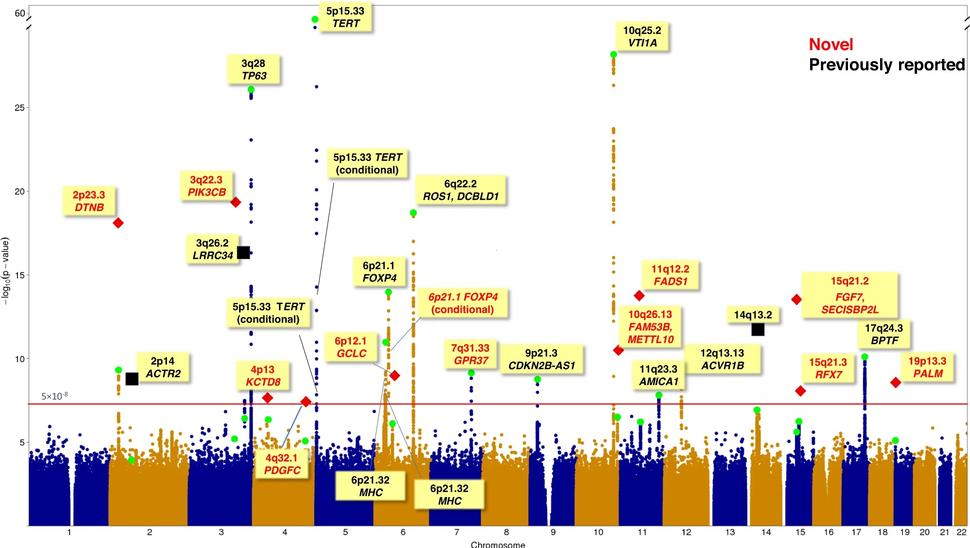Twelve Lung Adenocarcinoma Risk Variants Identified for East Asian Individuals
, by Jennifer K. Loukissas, M.P.P.
An international team of researchers, led by Jianxin Shi, Ph.D., senior investigator in the Biostatistics Branch, and Qing Lan, M.D., Ph.D., M.P.H., senior investigator in the Occupational and Environmental Epidemiology Branch, identified 12 novel susceptibility variants for lung adenocarcinoma in a population of East Asian (EA) ancestry. The findings of this genome-wide association study (GWAS) were published May 26, 2023, in Nature Communications.
Lung adenocarcinoma is the most common lung malignancy. Factors associated with risk include smoking, some environmental and occupational exposures, and family history. However, to date, studies of genetic risk have explained only a small fraction of heritability. The investigators included 21,658 cases and 150,676 controls drawn from a population of EA ancestry who resided in Mainland China, Hong Kong, Singapore, Taiwan, South Korea, and Japan. More than half of the cases were among individuals who never smoked.
The study—which is the largest GWAS of lung adenocarcinoma in an EA population to date—brings the total number of associated variants to 28 at 25 independent loci, strengthening the capacity for polygenic risk scores to identify individuals at elevated risk who may benefit from screening. Follow-up studies of the novel loci identified candidate genes, like FADS1 and ELF5, which are involved in genetic regulation of other susceptibility loci. When the investigators compared the novel associations observed in this population with those of European populations, they found little overlap, further underscoring the importance of research in diverse populations.
In a test of gene-environment interaction, they observed that the polygenic risk score generated with these data predicted risk better for never-smokers compared to individuals with a history of smoking, suggesting that the genetic susceptibility of the disease may vary by exposure patterns in populations from East Asia.
Reference
Shi J et al. Genome-wide association study of lung adenocarcinoma in East Asia and comparison with a European population. Nat Comms. 2023.
